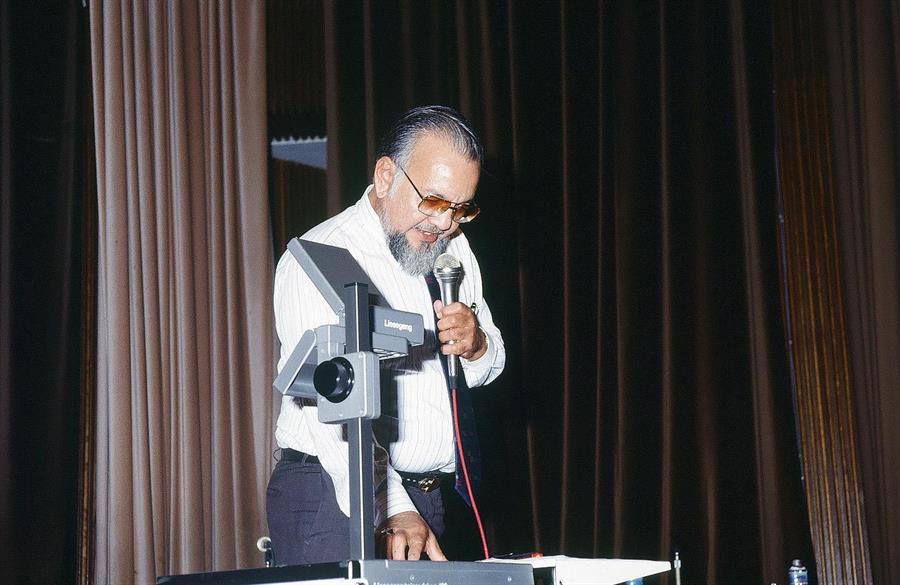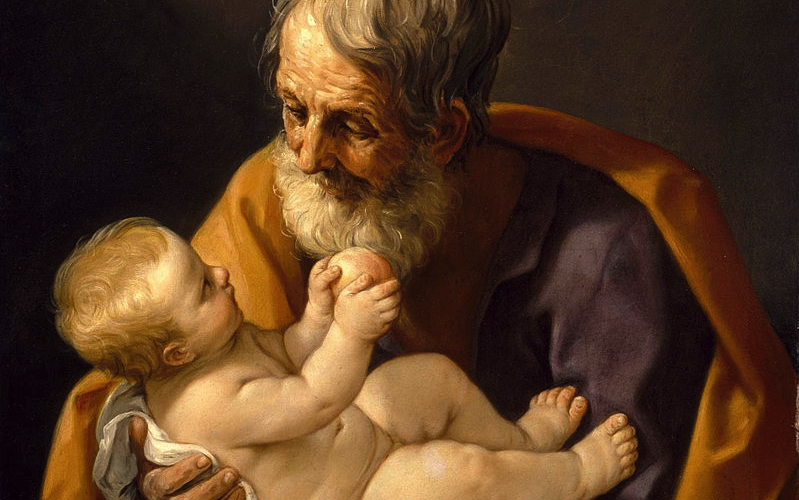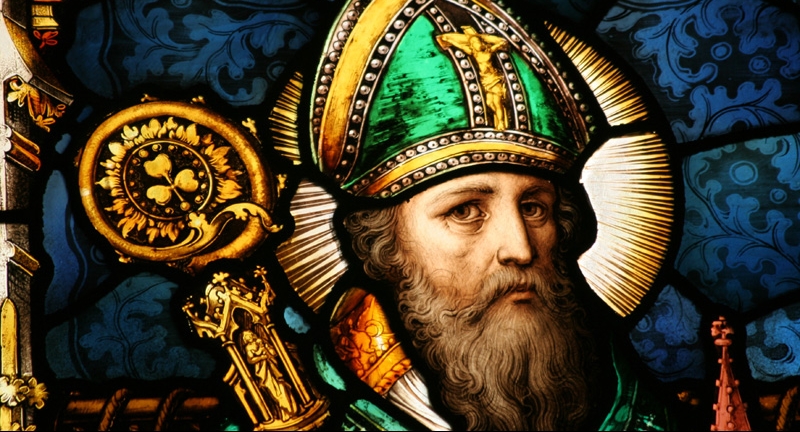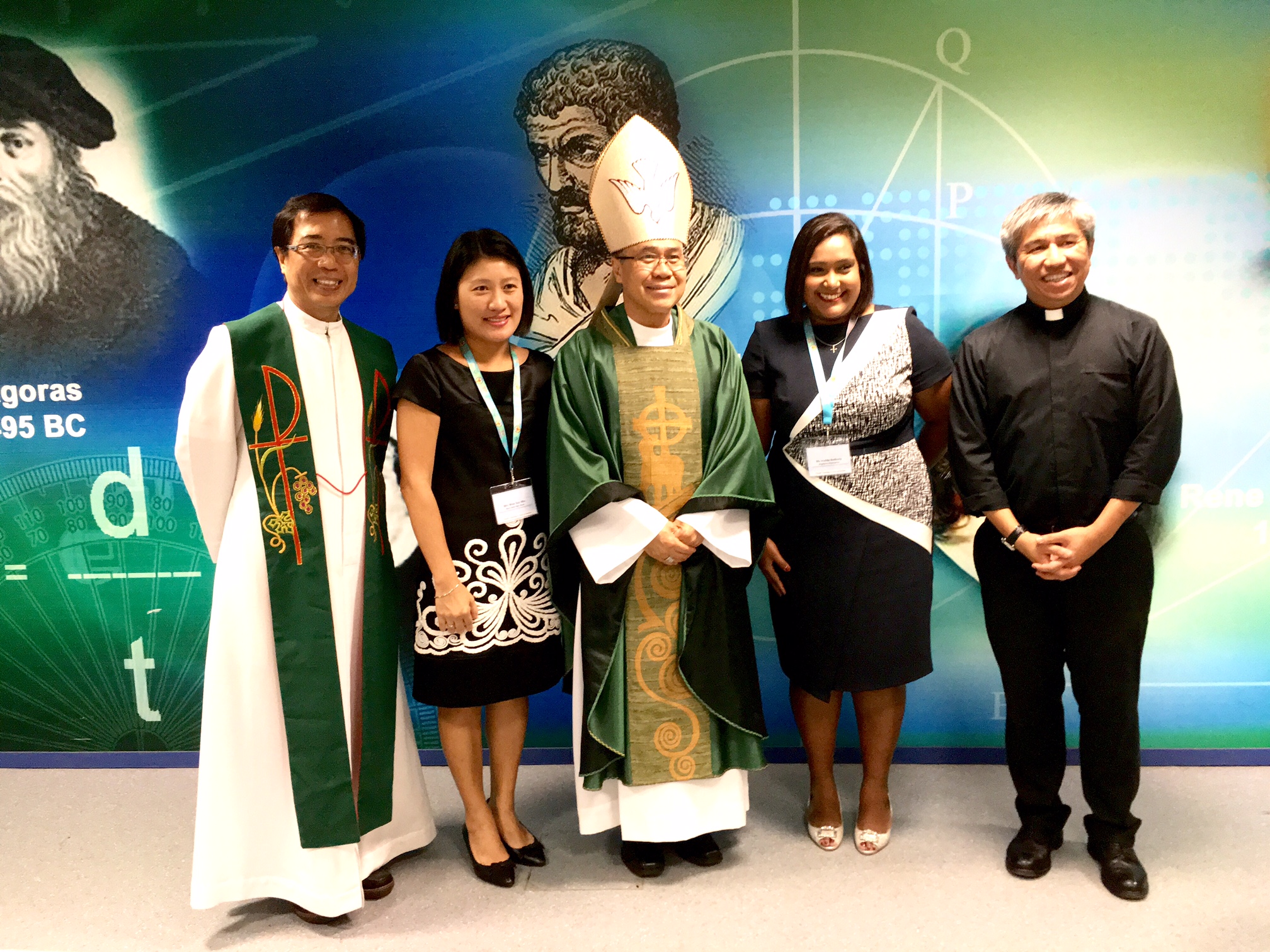On the morning of 15 March 2016, Tuesday, the Singapore Church lost one of its brightest minds. As we remember Rev Fr (Dr) Robert Balhetchet, former Rector of the Cathedral of the Good Shepherd, we also examine the lessons we can learn from his service as educators.
Fr Robert – or ‘Fr Bob’, as he was affectionately referred to by his parishioners – was intelligent and deeply intellectual, having learned to speak in nine languages and doing exceptionally well in school. He attended St Joseph’s Institution, where he finished his A Levels at the age of 14. But his heart was set on the priesthood at a young age. Having been introduced by his parish priest from the Church of the Holy Family, Fr Ashness, to the Minor Seminary’s Superior in 1954, he began his priestly studies and was ordained 10 years later at the age of 24. Thereafter, he was appointed Assistant Rector of the Cathedral of the Good Shepherd.
Employing his intellectual talents for the Church by studying the Vatican II documents on Ecclesiology in Rome, he earned a doctorate at the age of 37, and taught at College General in Penang. Apart from his academic achievements, he also proved to be effective at handling administrative affairs, overseeing the iconic papal visit of Pope John Paul II to Singapore in 1986.
But Fr Robert’s most notable contribution to Singapore education was in the 1980s. Back then, the Government had become increasingly concerned about the rapidly modernising trends that were shaping society. The late Dr Goh Keng Swee, then Minister for Education and Deputy Prime Minister, appointed Fr Robert to construct a curriculum for a new moral education programme to be taught in schools.
Titled ‘Being and Becoming’, the programme was implemented for lower-secondary students the year after, and resonated with the suggestions of the review committee headed by the late Mr Ong Teng Cheong, then Acting Minister for Culture. Amidst the precarious religious and social dynamics of the country, Fr Robert managed to create a moral education curriculum that was suitable for all students, Catholic and non-Catholic alike.
Fr Robert taught moral and religious education at CHIJ St Nicholas Girls’ School, where he touched the lives of many young people. Sr Maria Lau, Provincial of the Sisters of the Infant Jesus in Singapore and former principal of Catholic Junior College, remembers Fr Robert as a man who gave generously of himself whenever he commits to a project or task. She added, “Fr Bob had both breadth and depth, and he taught with passion.”
Even after his work was done with the education ministry, Fr Robert still remained deeply concerned about the mission. In a 2002 interview with the New Paper, he voiced his concerns about the disparate focus on academic subjects blotting out room for the formation of values through moral education.
“What good is it for someone to gain the whole world, and yet lose or forfeit their very self?” (Luke 9:25) The Lord’s words in the Gospel of Luke captures one of the essential struggles in our education mission today. We are called to impart critical life skills and fundamental academic knowledge, while remembering to instill paramount virtues that a young person should grow up with.
Fr Robert’s life and dedication serves as a valuable example for educators to never neglect our duty in nurturing the lives of our students, and guiding them towards being upright and responsible men and women. More so than any technical knowledge, what they learn from us about integrity, truthfulness, compassion and respect will serve them well and help them maintain fruitful relationships for the rest of their lives.
We pray for the repose of Fr Robert’s soul, and that we will continue our work in shepherding God’s beloved young people.





